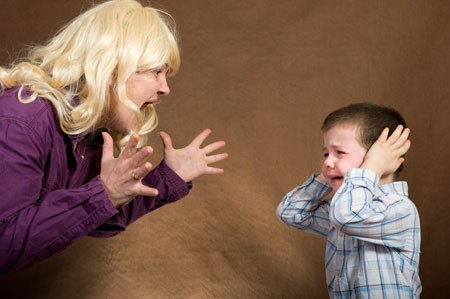Verbal Abuse in Childhood, Like Physical and Sexual Abuse, Linked to Earlier Onset and More Difficult Course of Bipolar Disorder
Earlier research has shown that childhood adversity is linked to earlier age of onset of bipolar disorder and more difficult course of illness. Physical and sexual abuse are associated with both earlier age of onset and more difficulties such as anxiety disorders and substance abuse. Now, new research by this editor (Robert M. Post) and colleagues links verbal abuse (even in the absence of physical and sexual abuse) to earlier onset of bipolar disorder and to more severe and complicated course of illness.
The study, published in the journal Bipolar Disorders, was based on the self-reports of 634 adult outpatients with bipolar disorder at four sites in the US. These participants were interviewed about their history of illness and the frequency of adverse events they experienced in childhood, adolescence, and adulthood, including physical, sexual, and verbal abuse. Twenty-four percent of these participants reported having experienced verbal abuse occasionally or frequently in childhood, but not other forms of abuse, while another 35% had a history of verbal abuse as well as physical or sexual abuse, for a total of 59% with a history of verbal abuse.
The greater the frequency of verbal abuse in childhood, the earlier the average age of onset of bipolar disorder. Participants with no history of abuse had a mean age of onset of 20.6 years, but verbal abuse by itself reduced the mean age of onset to 16.5 years, and verbal abuse plus sexual abuse reduced the mean age of onset to 15.3 years. (The mean age of onset for participants who experienced sexual abuse alone was 17.5 years.) It was impossible to determine the combined effect of verbal and physical abuse because verbal abuse was almost always present when physical abuse occurred. For the 14% of the participants who had experienced verbal, physical, and sexual abuse in childhood, the mean age of onset of bipolar disorder was 13.1 years.
Those who were verbally (but not physically or sexually) abused in childhood had more anxiety disorders, drug abuse, and rapid cycling than those who were not abused, but not more alcohol abuse. Those who were verbally abused also showed increasing severity of illness, including increased frequency of cycling.
Genetics can also play a role. Having a parent with a mood disorder also contributed to an earlier age of onset of bipolar disorder.
Editor’s Note: Researcher David J. Miklowitz and colleagues have shown that family focused therapy (FFT), which emphasizes illness education and communication enhancement within the family, is more effective than treatment as usual for children with a family history of bipolar disorder and a diagnosis of depression, cyclothymia, or bipolar not otherwise specified (BP NOS).
FFT was particularly effective in reducing symptoms in children from families with high expressed emotion, suggesting that this kind of family-based intervention could reduce levels of verbal abuse.


